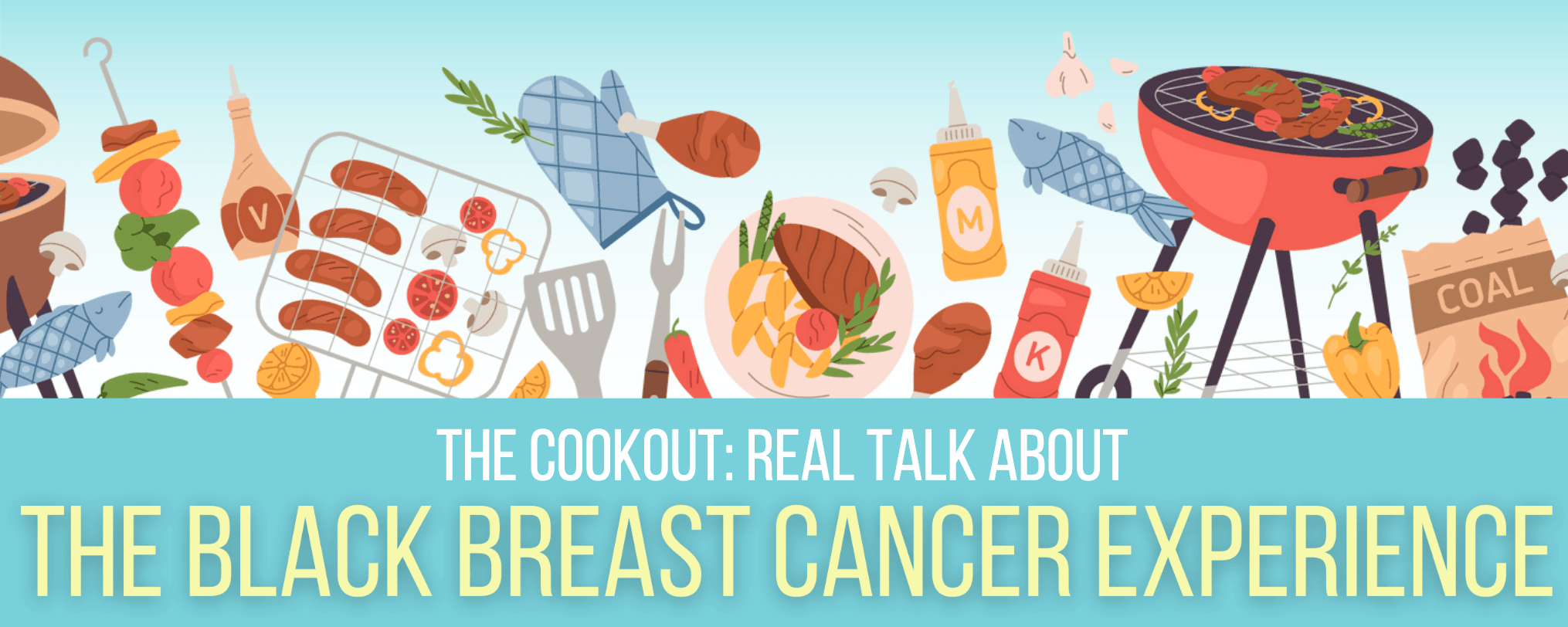
In the Black community, “the cookout” takes on many forms and meanings. Whether it’s an anxiously anticipated gathering of (chosen) family, a raucous Saturday at the barbershop, a bittersweet Homecoming for a nearly-departed elder, a shoulder-to-shoulder breaking of a fast, a somber prayer vigil for a young life taken too soon, a particularly poignant thread on #BlackTwitter, or a laugh-until-you-cry gathering of sorors, when the African diaspora comes together, topics of conversation are as diverse as the people gathered: family, (lack of) health, intergenerational wealth, faith, justice, love, art, and the living past. In these cookouts every voice has equal weight–from the beloved elder shuffling dominoes, to no nonsense nurse who’s become everyone’s informal medical home, to the Prodigal Son returning from incarceration, to the strong-armed Mama stirring mac n cheese, to the playful cousin teaching the latest dance, to the “woke college kid” registering people to vote. Even though most Black voices have a seat at the cookout table at any time, invitation to the cookout for those outside of the community is a badge of honor for those most deferent and respectful of The Culture, that can be revoked at any time.
The Cookout is more than a virtual or physical gathering and more than a punchline about cultural values. The Cookout is the acknowledgement of the unassailable value of Black bodies and minds; and the amplification of the transcendent value of understanding how the Black living past impacts the health of our futures.
The Cookout is a table prepared just for them, a place where Black people know that they can teach and learn. They know that, at the table, they will be accepted, loved, cared for, heard, no matter what they bring. And, they can rest assured that they leave the table fuller than when they sat down.
To assure comfort, confidentiality and care, the Cookout experience will be recreated using a triangulation of qualitative methodologies.
- In October, Dr. Johnson and members of the CLC team/board will offer a virtual introduction and facilitated discussion about the goals of the project and the timelines. Participant observation and conversation analysis during this meeting will be the first opportunity for data collection, and also the first reference for any changes/updates that may need to be made in the recruitment materials.
- Using the culturally-sensitive and trauma-informed research methods developed with Tess Thompson, and others, who interviewed Black informal caregivers of Black cancer patients, and formal caregivers and healthcare providers of Black cancer patients, Dr. Johnson’s interviews of Black cancer patients a sample of Black nurses, informal caregivers, and cancer patients will be given the opportunity to participate in virtual qualitative interviews with Dr. Johnson. These conversations will take place between October-December 2024.
- After the initial data collection and analysis has been completed, community partners will be welcomed to a series of open forums, “Data Cookouts”, where community members are invited to celebrate the relationship between CLC and to discuss the initial findings of the project. Understanding that there remains to be a need for reconciliation, repair and healing around these topics, the language used to introduce and facilitate the Data Cookout will borrow heavily from trauma informed data collection methods.
- In early Summer 2025, using the “data party” model, community members will be invited to discuss and critique the data summaries offered. Data picnic will open with a convocation from a community partner, food will be offered.
- To accommodate different learning and communication styles, the data will be briefly discussed using summary slides presented to the entire group;
- Then the community members will be directed to engage in a “gallery walk” where there will be images co-created by a graphic recorder that will summarize the themes with more detail; they will be invited to write on post-it notes their thoughts about the images and messages
- Then the community members will be invited for a final large group discussion about any thoughts and feelings they have about the data, the process, and next steps.
Ready to join The Cookout and start sharing your voice and experience with Dr. Johnson? Click here to get the conversation started or email Dr. Johnson directly at TheCookOut@estellalucia.com
